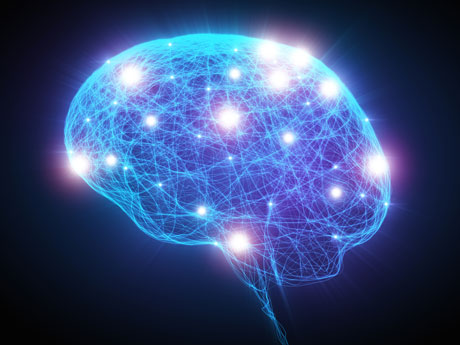LSD alters perception via serotonin receptors

LSD alters perception via serotonin receptors (istock) Quelle: Universität Zürich
Humans perceive everyday things and experiences differently and attach different meaning to pieces of music, for instance. In the case of psychiatric disorders, this perception is often altered. For patients suffering from addictions, for instance, drug stimuli are more meaningful than for people without an addiction.
Or patients with phobias perceive the things or situations that scare them with exaggerated significance compared to healthy people. A heightened negative perception of the self is also characteristic of depressive patients. Just how this so-called personal relevance develops in the brain and which neuropharmacological mechanisms are behind it, however, have remained unclear.
Researchers from the Department of Psychiatry, Psychotherapy and Psychosomatics at Zurich University Hospital for Psychiatry now reveal that LSD influences this process by stimulating the serotonin 2A receptor, one of the 14 serotonin receptors in the brain.
Before the study began, the participants were asked to categorize 30 pieces of music as personally important and meaningful or without any personal relevance. In the subsequent experiment, LSD altered the attribution of meaning compared to a placebo:
“Pieces of music previously classified as meaningless suddenly became personally meaningful under the influence of LSD,” explains Katrin Preller, who conducted the study in conjunction with Professor Franz Vollenweider and the Neuropsychopharmacology and Brain Imaging research team.
LSD works via the serotonin 2A receptors
Such excessive or exaggerated attributions of meaning to experiences and environmental stimuli occur in various psychiatric disorders. Conversely, a coherent self depends on a functioning network of so-called cortical mid-brain structure, as more recent studies reveal. According to this, the network is impaired in various psychiatric disorders. “LSD now seems to affect this very network and influence the experience of meaning,” explains Preller.
With the aid of functional magnetic resonance imaging (fMRT), the scientists were also able to demonstrate that study participants attached greater meaning to previously irrelevant stimuli after taking LSD. If, on the other hand, the serotonin 2A receptor was blocked pharmacologically before LSD was taken, all other psychological changes triggered by LSD were also normalized.
“This was very surprising,” says Preller. “After all, studies on animals revealed that LSD also stimulates other receptors, such as the dopamine D2 system.” It was previously assumed that this might be responsible for the euphoria triggered by LSD and that different receptor systems were involved in the development of experiencing meaning. The results of the current study, however, clearly indicate the key role of the serotonin 2A receptor in both the subjective experience under LSD and the changes in brain activity revealed using fMRT.
Possible approaches for courses pharmacotherapy to treat psychiatric problems
This observation sheds light on how LSD affects the brain neuropharmacologically and especially how the pharmacology of meaning perception works. While the serotonin 2A receptor seems to be responsible for generating new meaning, the dopamine system might regulate the relevance of stimuli we generally deem important. These results may therefore one day benefit people suffering from psychiatric disorders characterized by an altered perception of meaning, such as depression, phobias and addictions.
Literature:
Katrin H. Preller, Marcus Herdener, Thomas Pokorny, Amanda Planzer, Rainer Kraehenmann, Philipp Stämpfli, Matthias E. Liechti, Erich Seifritz, Franz X. Vollenweider. The fabric of meaning and subjective effects in LSD-induced states depend on serotonin 2A receptor activation. Current Biology, 16. Januar 2017. Doi: 10.1016/j.cub.2016.12.030
Contact:
Dr. Katrin Preller
Zurich University Hospital for Psychiatry
Phone: +41 44 634 44 67
E-Mail: preller@bli.uzh.ch
Media Contact
More Information:
http://www.uzh.ch/All latest news from the category: Health and Medicine
This subject area encompasses research and studies in the field of human medicine.
Among the wide-ranging list of topics covered here are anesthesiology, anatomy, surgery, human genetics, hygiene and environmental medicine, internal medicine, neurology, pharmacology, physiology, urology and dental medicine.
Newest articles

A new puzzle piece for string theory research
Dr. Ksenia Fedosova from the Cluster of Excellence Mathematics Münster, along with an international research team, has proven a conjecture in string theory that physicists had proposed regarding certain equations….

Climate change can cause stress in herring larvae
The occurrence of multiple stressors undermines the acclimatisation strategies of juvenile herring: If larvae are exposed to several stress factors at the same time, their ability to respond to these…

Making high-yielding rice affordable and sustainable
Plant biologists show how two genes work together to trigger embryo formation in rice. Rice is a staple food crop for more than half the world’s population, but most farmers…



